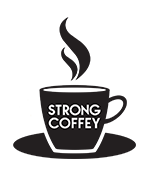Food was my first addiction. 1
I was raised by addicts and alcoholics. Short on affection, attention, and connection, food was sometimes the only pleasure I had access to. 2 When I was sad, bored, scared, or lonely, ice cream, snack cakes, and peanut butter were among the quickest ways to change the channel in my head to something… different.
When no one was looking, I stuffed as much food into my mouth as possible. It was a thrill. A distraction. It filled the hole in my tiny baby soul. It was years before I realized that each time I tried to fill the hole with food, the hole got deeper, wider, hungrier.
The more I binged, the worse I felt and the more I wanted to binge. The Circle of Life: Addiction Edition.

Someone throw 2001 me some shades FFS
Years of abusing food to try to cope with life made me feel progressively more disconnected, isolated, and out of control.
It also left me weighing over 300 pounds.
I’d read the self-love screeds. Sure, I wanted to accept myself and my body as they were. I wanted to just decide that being fat was all good and stop trying to not be. But the facts were undeniable:
- Weighing so much was incredibly uncomfortable
- I was limited in what I could do safely
- I was sick and tired of feeling out of control when my actions were the one and only thing I had CONTROL over.
If you feel like you’re trapped in an addictive cycle with food – crave, obsess, binge, regret – there’s, perhaps, no greater freedom than to abstain.
Abstain (verb): To choose not to do or have something; to refrain deliberately and often with an effort of self-denial from an action or practice.
Of course, you can’t NOT eat, so how you define abstinence is up to you. My clients define abstinence in dozens of ways.
Ways My Clients Define Abstinence From Food Addiction:
Abstaining from one or more of the following:
- Sugar
- Processed food
- Fast food
- Dairy
- Soda
- Animal products
- Flour
- Non-vegetable-based carbohydrates
- Hyperpalatable foods (high salt, sugar, and fat)
- Bingeing
- Compulsive overeating
- Emotional eating
- Eating after a specific time
- Straying from a defined meal plan
If you feel out of control around certain foods or ways of eating, just saying “no” to that food or behavior is the surest path to peace, health, and sanity.
But sometimes life has other plans. It happened to me after I lost my unwanted weight and after years of eating well. I was a crazed, postpartum depressive lunatic after the birth of my second daughter. I knew I’d feel better and heal more quickly if I just stayed away from sugar and bingeing, but I felt so miserable and incompetent and overwhelmed that I just didn’t care enough to stop hurting myself with food.
I also knew from past experience that trying to eat certain foods in moderation simply did not work for me.
What do you do if you know moderation doesn’t work for you, but abstinence feels out of reach?
What if you’re a postpartum train wreck? What if you’re grieving the death of a loved one? What if you don’t think you’re worth the effort it takes to undo an old pattern? What if your doctor insists that abstinence isn’t the best idea? What if your mental health professional thinks abstaining might have negative consequences? What if the food coach you just signed on with thinks, “Everyone can learn to eat everything in moderation!” What if, for whatever reason, your own inner compass says abstinence isn’t the best choice for you right now?
If you can’t, won’t, or are being advised not to abstain from whatever foods or ways of eating that make you feel out of control, here’s a suggestion:
Focus less on judging yourself or trying to change how or what you eat. Instead, spend that time caring for and about the rest of you.
My postpartum depression was hell, and I made it worse by constantly berating myself for not “doing what I needed to do” around food. I obsessed about how dumb and irresponsible I was for not abstaining. I burned through whole days and weeks resenting myself for what and how I was eating.
Then, it hit me: I may not be making good food choices, but there are a hundred other ways I could take care of myself right now.
What if I leave the food thing alone and pay attention to the things I neglect when I feel shitty about how I’m eating?
I stopped focusing on food. I went on walks with one kid in the stroller and the other wrapped to my front. I drank water. I slept whenever I could. I lifted some weights. I watched a comedy or two. My energy came back. I started to feel neutral then, sometimes, happy. Soon after, I had the strength, clarity, and self-regard to ditch the sugar, quit binging, and eat with care again.
If you feel like you’re hooked on a specific food or way of eating, consider this: Give yourself permission to eat as you would anyway. Then, make better use of that time. Instead of wasting hours, days, or years judging yourself for what or how you eat – instead of wasting time feeling badly about not having “fixed” the “problem” yet – focus on whatever facets of self-care you neglect when you’re preoccupied with food.
What To Do If Abstinence Isn’t an Option Right Now:
- Consistently get the sleep your body craves
- Be (more) active in (more) ways you enjoy
- Get organized at work
- Hang out with people you love
- Write, paint, sing, dance, sculpt, craft… create!
- Make your home feel more like you want home to feel
- Get on track with medication, therapy, or whatever you do to keep your head on straight
- Cozy-up your bedroom
- Make a mix of your favorite music
- Set a weekly schedule, be careful to carve out time for the things that are important to you
- Donate the shit out of your unwanted shit
- Slay the patriarchy
- Have (more) (good) sex – solo or otherwise
- Pay down debt
- Look for a job that’s more satisfying, stable, and/or rewarding
- Start a support group for women dealing with something you’ve successfully overcome
- Plan a trip you’ve been meaning to take
- Up your parenting game
- Clean all the things!
- Find a place of worship / spiritual community / practice
- Embrace naps
- Give the kind of hugs you want to get
- Comment below with more ideas!
If you take this suggestion, one of three things is likely to happen:
- You’ll feel better – less and less desperate to check out or change the channel in your head with food – until you’re no longer haunted or controlled by the food or way of eating, 3
- You’ll see that no amount of self-care can cancel out the negative impact certain foods or ways of eating have on you, and your desire to feel sane and peaceful will propel you closer to embracing abstinence.
- As happened to me, you’ll feel more energized, clearer, and empowered, so that harming yourself with food – or with anything else – feels disingenuous, agonizing, and eventually, impossible.

Caring for myself in other ways helped me emerge from my postpartum depression all phoenix-from-the-ashes like.
If you know from past experience that abstinence is the only honest remedy for you, don’t be shocked if you still resist it. You could hardly say you were an addict if you didn’t. But if abstinence isn’t in the cards for you right now, consider eating as you would anyway, and spend your reclaimed time, effort, and energy on every other facet of self care.
Even if you’re not making caring choices with food today, this can still be time well spent.
Take care of the rest of you, and eventually the food piece may all but take care of itself.
Notes:
- First of many. Not gambling, though! I can walk right past a wall of scratch tickets and I don’t even hesitate! #itsthelittlethings Meanwhile,”Food Addiction” isn’t recognized in the DSM as a legit addiction yet, despite the fact that many of us with other, widely-accepted addictions insist the cycle is the same. Gambling wasn’t recognized as a legit addiction until 2013, so do with all that info what you will. ↩
- That is, until I discovered alcohol, cigarettes, and masturbation. Than I was REALLY off to the races. ↩
- If you’re truly addicted, this is an unlikely or, at best temporary, result. The most thorough treatment for addiction begins with abstinence. ↩




